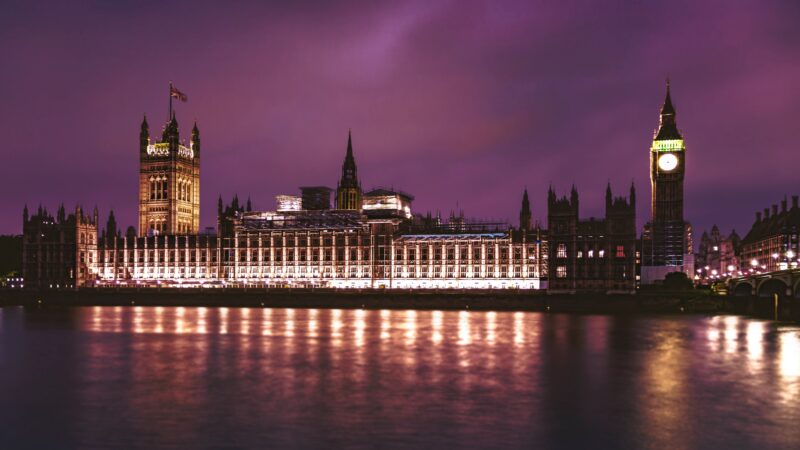It’s often said that contemporary philosophy is stuck in an intellectual rut. While our forefathers pushed the boundaries of human knowledge, modern philosophers concern themselves with impenetrable esoterica, or gesture vaguely in the direction of social justice.
Yet venture to Whitehall, and you’ll find that once popular ideas have been refuted thoroughly by new schools of thought.
Take the Hegelian dialectic, once a staple of philosophical education. According to Hegel, the presentation of a new idea, a thesis, will generate a competing idea or counterargument, an antithesis. The thesis and the antithesis, opposed as they are, will inevitably come into conflict with one another.
However, this conflict is a productive one. With the merits of both the thesis and the antithesis considered, the reasoned philosopher will be able to produce an improved version of the thesis, a synthesis.
In very basic terms, this is the Hegelian dialectic, a means of philosophical reason which, if applied correctly, should result in a refinement and improvement of ideas over time. Compelling, at its face.
However, this idea is now an outmoded one. Civil servants and their allies in the media and the judiciary have, in their infinite wisdom, developed a better way.
Instead of bothering with the cumbersome work of developing a thesis or responding to it with an antithesis, why don’t we just skip to the synthesis? After all, we already know What Works through observation of Tony Blair’s sensible, moderate time in No 10 – why don’t we just do that? That way, we can avoid all of that nasty sparring and clock off early for drinks.
This is the grim reality of modern British politics. The cadre of institutional elites who came to dominate our political system at the turn of the millennium have decided that their brand of milquetoast liberalism is the be-all and end-all of political thought. The great gods of this new pantheon – Moderation, Compromise, International Standing, Rule of Law – should be consulted repeatedly until nascent ideas are sufficiently tempered.
The Hegelian dialectic has been replaced by the Sedwillian dialectic; synthesis begets synthesis begets synthesis.
In turn, politicians have become more restricted in their thinking, preferring to choose from a bureaucratically approved list of half-measures. Conservatives, with their aesthetic attachment to moderate, measured Edwardian sensibilities, are particularly susceptible to this school of thought. We no longer have the time or space for big ideas or sweeping reforms. Those who state their views with conviction are tarred as swivel-eyed extremists, regardless of the popularity of their views. Despite overwhelming public dissatisfaction with our porous borders, politicians who openly criticise legal immigration will quickly find calls to moderate. If you’re unhappy with the 1.5 million visas granted by the Home Office last year, perhaps you’d be happy with a mere million?
The result has been decades of grim decline. As our social fabric unravels and our economy stagnates, we are still told that compromise, moderation, and sound, sensible management are the solutions. This is no accident. Britain’s precipitous decline and its fraying social fabric has raised the stakes of open political conflict. Nakedly pitting ideas against each other risks exposing our society’s underlying decisions and shattering the myth of peaceful pluralism on which the Blairite consensus rests. After all, if we never have any conflict, it’s impossible for the Wrong Sorts to come out on top.
The handwringing and pearl-clutching about Brexit was, in part, a product of this conflict aversion. The political establishment was ill-equipped to deal with the bellicose and antagonistic Leave campaign, and the stubbornness of the Brexit Spartans. Eurosceptics recognised that their position was an absolute one – Britain must leave the European Union, and anything short of a full divorce would fall short of their vision.
It was not compromise that broke the Brexit gridlock, but conflict. The suspension of 21 rebel Conservative MPs was followed by December’s general election victory. From the beginning of Boris Johnson’s premiership to the end, he gave no quarter to the idea of finding a middle ground.
Those who are interested in ending our national decline must embrace a love of generative adversity. Competing views, often radical views, must be allowed to clash. We should revel in those clashes and celebrate the products as progress. Conservatives in particular must learn to use the tools of the state to advance their interests, knowing that their opponents would do the same if they took power.
There are risks, of course – open conflict often produces collateral damage – but it would be far riskier to continue on our current path of seemingly inexorable deterioration. We must not let the mediocre be the enemy of the good for any longer.



